The Top 10 Health & Fitness Myths
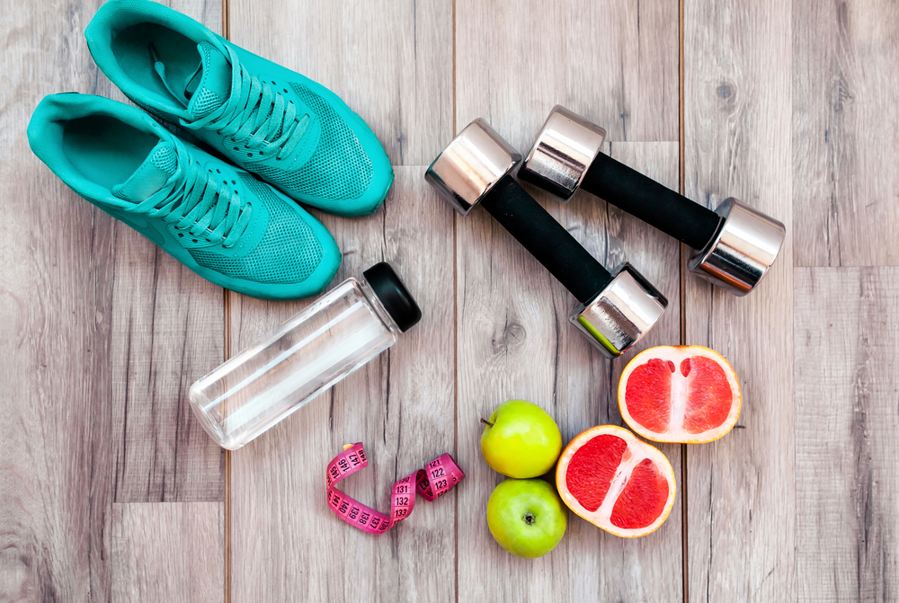
Keeping fit is becoming an increasingly top priority for Brits today. The health and fitness forecast is set to grow 20% by 2020, with 9.2 million already members at gyms. But among the new fitness fads and diets, there is a lot of confusion and rumours circulating around about what is actually best for our health. Here we de-bunk arguably the most common and destructive 10 health and fitness myths, in order to maximise your health and fitness regime.
1. Resistance exercises doesn’t help you lose weight
You might put on ‘weight’ by carrying out resistance exercise regularly. But this is due to muscle growth, which is heavier than fat. Just because the scales are going up; this is not necessarily cause for concern. It is an ongoing myth that putting on weight is always negative and it is equated with fat.
Many assume that cardio is the only method of losing body fat, yet this is not entirely true. Resistance activities help to build lean muscle mass, which allows you to burn more calories during workouts and even in day-to-day activities.
Resistance activities also aid to elevate your bass metabolism for several hours after training, which helps to continue burning calories after your workout. In all, losing weight occurs when you burn more calories than you consume. Resistance is tough exercise which increases your heartrate and gets you working up a sweat and therefore helping you to burn fat.
For the best results however, resistance should be combined with cardio.
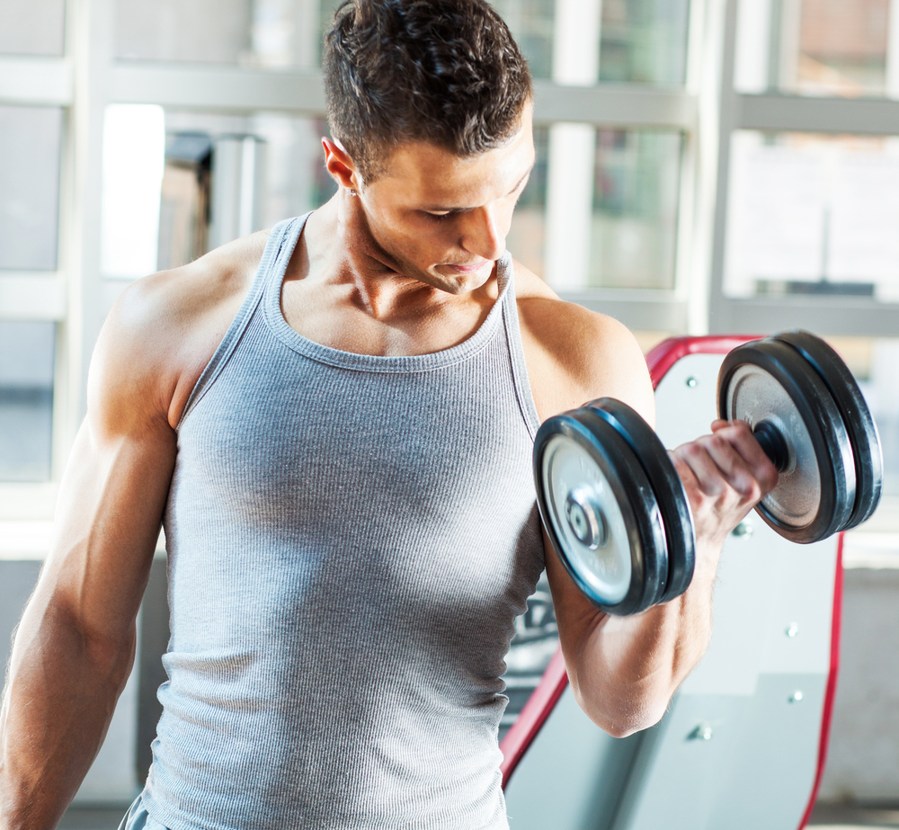
Credit: Milanzeremski/ Shutterstock
2. The more you gym; the stronger you get
Gym-ing every day is not only bad for your body, but it’s not good for your workout and it won’t make you stronger. It is best to give your body time to repair to aid muscle growth. That aching you get a day after exercise is your muscles repairing themselves after tiny micro-tears are made and the subsequent growth is stronger than before. The pain exists to alert your body to take it easy for a day or two; and it is important not to neglect this.
It is also important to work on each muscle group equally to ensure you are equally strengthening your body; consider focusing on a new part of the body each time you gym so you don’t wear out your muscles – but don’t forget all important rest days for repair.
3. Stretching doesn’t burn calories
Directly, stretching doesn’t burn heaps of calories, although it still burns more than if you were standing still. Indirectly though, it has tonnes of benefits.
Stretching during a workout, when your body is warmed up can help by prolonging how long you can work out for, which in turn helps you to burn more calories.
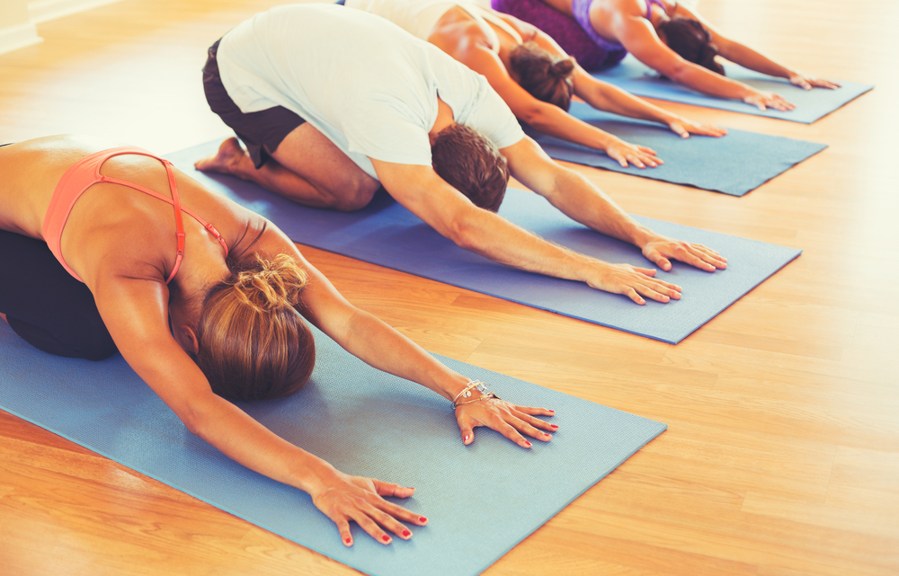
Credit: Epic Stock Media/ Shutterstock
4. Being skinny = healthy
Slim and skinny does not = healthy!
Some of the slimmest people are also the unhealthiest.
Of course, it is better to maintain a healthy weight, however a healthy weight is not the only indicator of overall health. Skinny people might be under-consuming, or consuming the wrongs sort of foods, such as biscuits, cake and fizzy drinks. If the food you are eating is not balanced and not providing much nutritional value, then your diet is NOT healthy.
Similarly, your BMI is merely an indicator of overall health. It does not take into consideration muscle mass, frame or the types of activity which are carried out on a daily basis. Body builders who walk around with nothing but muscles may appear healthier due to their extreme low fat ratio, but in actual fact having fat reserves is very important.
5. Sport drinks are good for your fitness
In the UK, we spend £5 billion per year on sports drinks and protein shakes. But are these drinks actually doing anything to help our bodies?
Drinking whilst exercising is very important and sport drinks can aid with water absorption and replace lost salts and electrolytes in the body.
However, research has found sports drinks had no effect on water absorption in our bodies. They only way they aid water intake is by making you thirsty as they are full of sugar and unnecessary calories. Drinking water and eating well are the best ways to replace lost sugars and electrolytes after a workout.
Protein shakes contain a lot of protein. In reality, consuming too many of these shakes can have an adverse effect on your body, leaving you more at risk of osteoporosis and kidney problems (NHS). How much protein you need depends on your weight and physical activity levels, but an average person should consume at least 0.8 grams per kilogram of body weight. For an active person, this number increases to around 1-1.2 grams.
This can be better achieved by eating food high in protein, such as eggs, almonds, chicken, oats, yoghurt, beef and quinoa, among others.
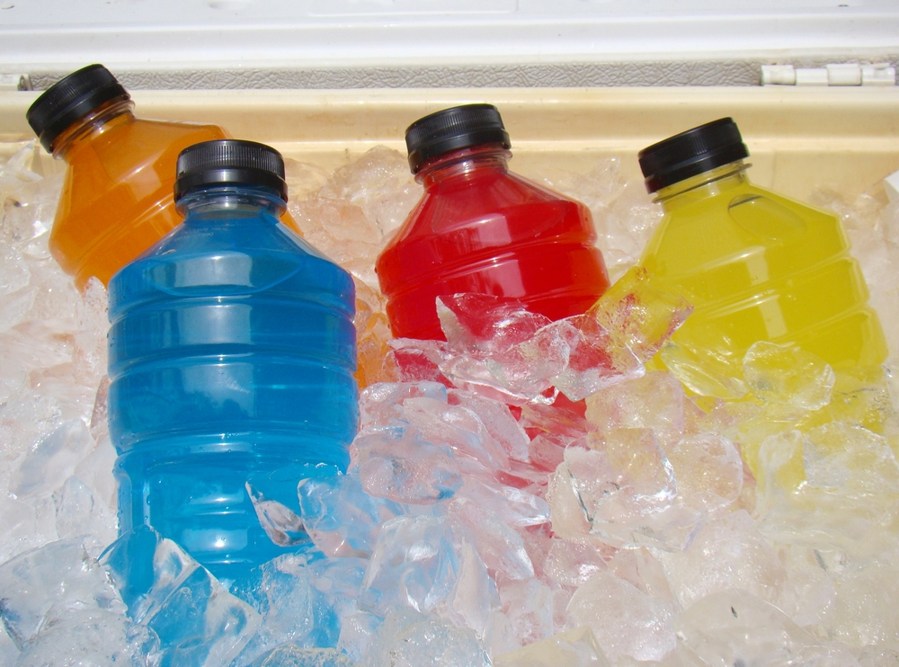
Credit: Chuck Wagner/ Shutterstock
6. You only burn calories during exercise
In truth, you can burn calories up to 15 hours after an exercise session, particularly if you engage in intense workouts. Even if they are short, they are very effective, hence the increase in HIT (high intensity training) classes offered in gyms.
This calorie loss after exercise is referred to as the ‘after-burn’ and is most effective in those who don’t regularly exercise.
7. You should walk 10,000 steps a day
With the increase in fit-bits and fitness apps, the latest fad has been step counting – and research has pointed to the fact we should be walking 10,000 steps a day.
It is undeniable that Brits do not walk enough, with many of us confined to a desk eight hours a day, with little time for exercise.
Whilst there is nothing wrong with walking 10,000 steps a day, it’s not the be all and end all if you are active in other ways. For walking to aid in weight loss, it would have to be at a fast pace with inclining terrains included.
Walking is good for the mind, which has an impact on overall health, so keep walking for enjoyment and leave the step-counter at home this time.
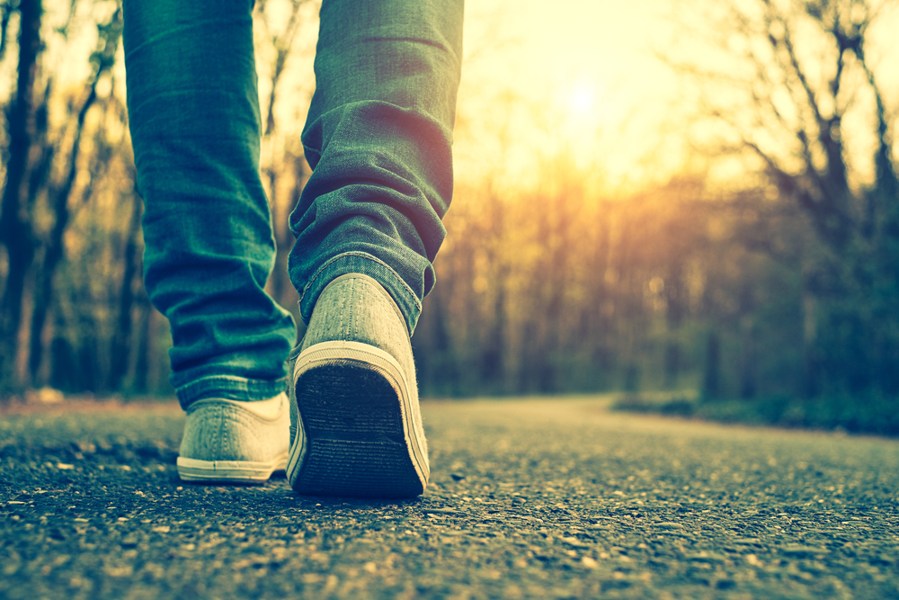
Credit: Creaturart Images/ Shutterstock
8. You should stretch before exercise
There is no denying that stretching is important before resistance training or anything which puts pressure on your joints and muscles, however, timing is important. Stretching is best done after your muscles have had the chance to warm up a bit, or you put yourself at risk of pulling a muscle. When at the gym, consider 15 minutes on the treadmill before your stretches.
9. You should always count calories
Sometimes people get so fixated by counting calories that they don’t take a moment to consider what they are putting into their body, and whether it contains any nutritional value. The guidelines that exist are rough and again don’t take into consideration how active you are or your body type.
Many people rush for the low-fat option, which actually contains a substantially higher amount of salt, or the sugar free option, whilst low in calories, is bad for the body. Sugar-free drinks confuse the body and provide no nutritional value. Moreover, they have also been linked to headaches and tooth decay, so ditch those low fat/zero options next time you’re shopping for groceries.

Credit: designer491/ Shutterstock
10. Crash diets are effective for weight loss
Not only are such diets bad for your body, they also don’t actually help you to lose weight. The sudden drop in calories can send your body into shock, which causes it to lower your metabolism and any food you put into your body gets stored as fat reserves.
When you start eating normally again, your body is still in a confused state and you might find you quickly put on any weight you may have lost.
A sustainable diet is best for the long-term results, where reduction of calories is introduced gradually and a well-balanced diet is emphasised.

Credit: Kiian Oksana/ Shutterstock
Feature image credit: Mariiaa/Shutterstock








